Over the past few decades, there has been growing interest and expertise in applying the science of forensics to animal abuse investigations. Forensics are defined as the use of scientific methods and techniques in crime investigations. This interest has been driven by increased societal awareness of animal welfare issues. There is also growing recognition that […] Read more
Livestock Management — page 184
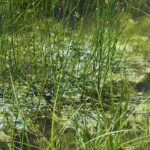
Heat wave raises blue-green algae risk
Temperatures soared across the Prairies during the last week of June, bringing with it the risk of blue-green algae in ponds and dugouts. Blue-green algae is toxic for livestock. Sean Osmar, manager of communications at the Saskatchewan Water Security Agency, said the temperatures haven’t changed the bloom of blue-green algae in the province. However, that […] Read more
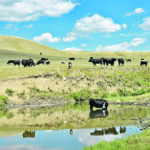
Cracking the sustainability puzzle
The beef industry is faced with an interesting, yet frustratingly complex riddle: how to help feed a growing world population but still protect the environment and the animals, satisfy the consumer and create a reasonable living while addressing these matters. The answer often put forward is sustainability, but this leads to many more questions. Can […] Read more

Russia bans feed imports
The federal government is investigating claims from Russia that animal feed and pet food containing GMOs were shipped to that country. The Russian Federation has suspended all shipments from Canada effective June 17, saying that undeclared or unregistered GMOs were found in recent shipments. Product shipped before June 17 will be tested. The Canadian Food […] Read more
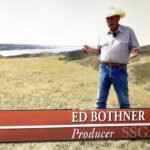
Saskatchewan producers recognized for stewardship
Ed and Charlotte Bothner from Beechy have been named Saskatchewan’s TESA (The Environmental Stewardship Award) winners for 2021. The couple operates a cow-calf business on land north of the former Matador Community Pasture and 6,000 acres of native grass next to the South Saskatchewan River. In the 1990s they seeded crop land back to grass, […] Read more
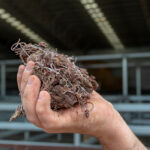
Seaweed may cut beef cattle’s methane
Researchers at University of California, Davis have found a simple marine supplement that might help reduce cattle’s methane emissions. “We came across a study by James Cook University and CSIRO (Commonwealth Scientific and Industrial Research Organization, Australia) that showed that a specific seaweed, Asparagopsis taxiformis, had anti-methanogenic properties and, in the lab, was able to […] Read more
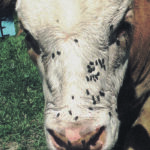
Pinkeye can be a challenging health condition to prevent
It is the time of year when cow-calf producers occasionally need to deal with a frustrating disease known as pinkeye. The term pinkeye refers to any kind of inflammation of the conjunctiva of the eye. This is perhaps more of an “umbrella diagnosis” or clinical syndrome as there are numerous causes of these infections including […] Read more
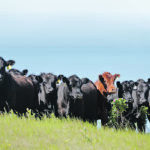
Pandemic boosted beef consumption
Consumers were at home with more disposable income and willing to spend it on beef, even with the high retail prices
Beef consumption in Canada rose slightly last year and market analyst Anne Wasko says that’s encouraging as the industry works through strong supply. Canadians ate about 18 kilograms of beef per capita in 2020, an increase of .3 percent. Overall, beef demand was 5.5 percent higher than in 2019, she told the recent Saskatchewan Stock […] Read more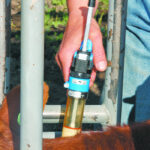
Gram-negative vaccines need caution
Veterinarians who look after cattle are shifting priorities to emphasize disease prevention over treatment, says Gordon Atkins of the University of Calgary’s veterinary school. The change is occurring as greater focus falls on reducing antibiotics in livestock production. Overall management, nutrition practices and the need to gain a better understanding of the advantages of appropriate […] Read more
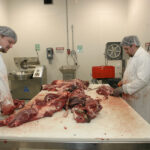
Producers call for processor incentives
Saskatchewan Stock Growers Association members say the provincial government should offer incentives to increase processing capacity in the province. A resolution passed at the organization’s recent annual meeting notes the government’s goal is to double livestock processing by 2030. The province has been without a federally inspected plant since the one in Moose Jaw closed […] Read more




